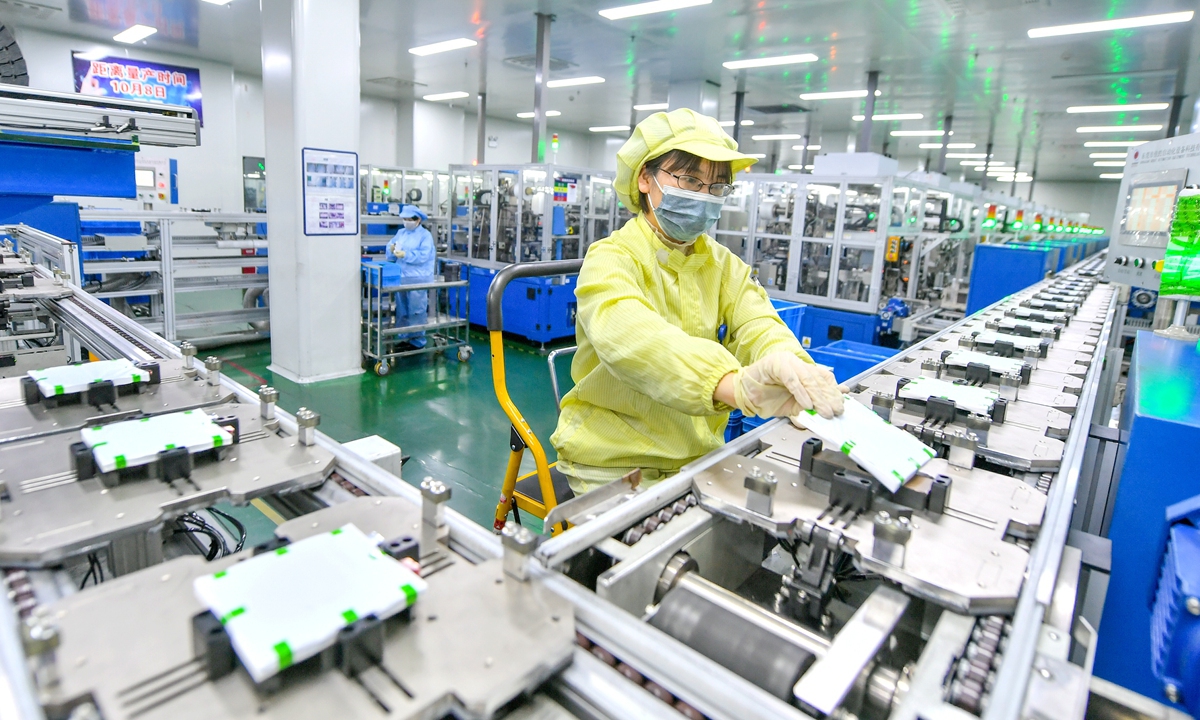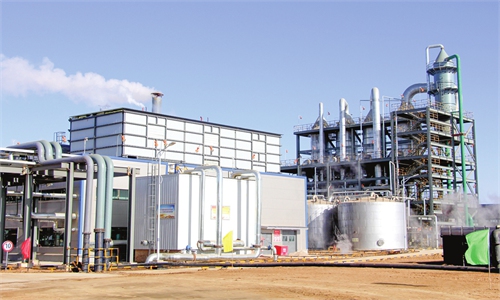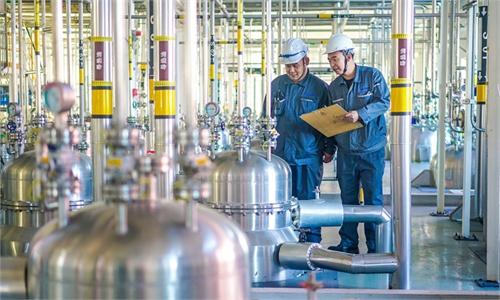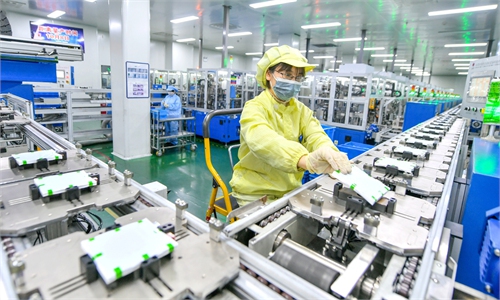
A worker at a lithium battery factory in Huzhou, East China's Zhejiang Province Photo: cnsphoto
One of the world's first seawater lithium extraction projects and also the first of its kind in China was agreed on in Qingdao in East China's Shandong Province on Wednesday, marking an important step in facilitating China's lithium self-sufficiency.
As the key resource for making batteries for new energy vehicles (NEVs), lithium is a vital resource and China imports around 75 percent of the total domestic consumption. The seawater extraction project could offer a new alternative for securing a strategic supply of lithium, industry insiders said.
The signing ceremony for the project took place in Qingdao on Wednesday, marking the joint cooperation of a branch company of Qingdao Water Group Co and the Shanghai-based LIS Materials Technology Co. The project aims to conduct the extraction of lithium from desalinated concentrated brine as part of preparation for mass production in the future, the Global Times learned.
The construction and commercial cooperation plan have now been completed, and the project is expected to be officially put into operation by the end of December, according to the company.
Before the launch of the project, the company had been working on lithium recovery from concentrated seawater brine from December 2021 to January, during which they produced directly salable lithium-enriched liquid equivalent to 0.25 tons of lithium carbonate from around 200,000 tons of seawater, Peng Mingshan, founding partner of LIS Materials Technology Co, told the Global Times on Thursday.
This is a challenging task given that the content of lithium in seawater is very low, and a fraction of the amount in lithium-rich ore, Peng said.
"Hopefully we can achieve mass production this year or next," Peng said.
Despite the challenges, the company still believes there is huge potential, given that lithium is widely used in sectors such as ceramics and glass, as well as NEV batteries.
The use of lithium is particularly intense in the NEV industry, in which China is the world leader in terms of production, consumption and exports. China exported 679,000 NEVs last year, a year-on-year increase of 120 percent.
Given the huge demand for NEVs and the high dependency on lithium imports, there is a big gap to narrow in terms of domestic supply and demand, industry insiders said.
Currently, the development of this resource is mainly based on salt-lake brine and pegmatite lithium deposits. However, this will not be enough in the long term, they said.
It is estimated that China's lithium self-sufficiency rate will only be 9.6 percent in 2025, according to media reports.
Chinese companies have been extracting lithium at domestic salt lakes, mostly in Northwest China's Qinghai Province, which is relatively rich in the resource.
China's largest lithium extraction project, which is run by QingHai Salt Lake Industry Co in Northwest China's Qinghai Province, commenced trial operations in August 2021.
Controlling the production costs in seawater lithium extraction will be a key factor for future industrialization, Wu Yanhua, secretary general of the Lithium Industry Branch of China Nonferrous Metals Industry Association, told the Global Times on Thursday.
While it is still too early to tell its possible contribution to the reshaping of the supply chain, Wu said that "we encourage all kinds of industrial trials, and believe that as production becomes more mature, it will help China's lithium resources to become independent and controllable."



